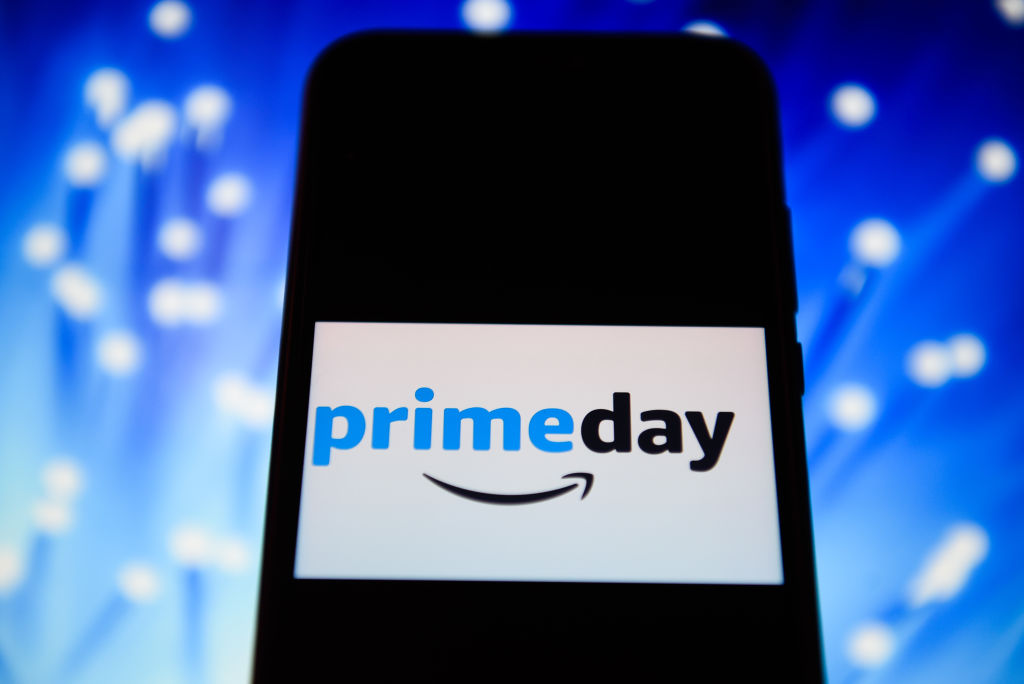3 Things That Cost Women More
From razors to retirement, men spend less than women on certain things.

Profit and prosper with the best of Kiplinger's advice on investing, taxes, retirement, personal finance and much more. Delivered daily. Enter your email in the box and click Sign Me Up.
You are now subscribed
Your newsletter sign-up was successful
Want to add more newsletters?

Delivered daily
Kiplinger Today
Profit and prosper with the best of Kiplinger's advice on investing, taxes, retirement, personal finance and much more delivered daily. Smart money moves start here.

Sent five days a week
Kiplinger A Step Ahead
Get practical help to make better financial decisions in your everyday life, from spending to savings on top deals.

Delivered daily
Kiplinger Closing Bell
Get today's biggest financial and investing headlines delivered to your inbox every day the U.S. stock market is open.

Sent twice a week
Kiplinger Adviser Intel
Financial pros across the country share best practices and fresh tactics to preserve and grow your wealth.

Delivered weekly
Kiplinger Tax Tips
Trim your federal and state tax bills with practical tax-planning and tax-cutting strategies.

Sent twice a week
Kiplinger Retirement Tips
Your twice-a-week guide to planning and enjoying a financially secure and richly rewarding retirement

Sent bimonthly.
Kiplinger Adviser Angle
Insights for advisers, wealth managers and other financial professionals.

Sent twice a week
Kiplinger Investing Weekly
Your twice-a-week roundup of promising stocks, funds, companies and industries you should consider, ones you should avoid, and why.

Sent weekly for six weeks
Kiplinger Invest for Retirement
Your step-by-step six-part series on how to invest for retirement, from devising a successful strategy to exactly which investments to choose.
When it comes to financial issues affecting women, the gender pay gap often takes the spotlight. But the spending side of the equation is as equally alarming. Women pay more than men for many things ranging from razors to even cars.
The higher costs aren’t necessarily due to discriminatory practices, but that doesn't make bigger bills for women any easier to manage. Here are three things that cost women more and tips on how to help lower those costs.
Health Care
On average, women spend $1,136 out of pocket on health care annually. That’s 26% more than men spend in a year. Younger women between 19 and 44 usually take the biggest hit, largely due to the high cost of bearing kids. But longer lifespans for women mean greater health care costs in later years too.
From just $107.88 $24.99 for Kiplinger Personal Finance
Become a smarter, better informed investor. Subscribe from just $107.88 $24.99, plus get up to 4 Special Issues

Sign up for Kiplinger’s Free Newsletters
Profit and prosper with the best of expert advice on investing, taxes, retirement, personal finance and more - straight to your e-mail.
Profit and prosper with the best of expert advice - straight to your e-mail.
If you’re looking for ways to spend less on health care, be sure to take advantage of flexible spending accounts and health savings accounts to save on taxes. You can also trim spending by staying within your insurer’s network and by switching to generic drugs.
Clothing
The perceived importance of appearance can plague a woman’s pocketbook. Because women can feel pressure to vary their clothing more, they typically shell out more money on fashion than men. For example, high-end designer jeans from Diesel range from $128 to $748 for men. That’s a lot, yet the price tag for women is even more staggering: $158 to $1,398.
A simple way for women to cut down on clothing costs is to build a wardrobe that’s versatile and timeless. Items such as a one-button blazer and a pencil skirt can be worn together or separately at a variety of occasions for years to come.
Retirement
Females are expected to outlive males by nearly five years, on average. When you consider retirement planning, that means most women will need a bigger nest egg. Why? When you live longer, you’ll not only have more years’ worth of everyday expenses to cover but you’ll likely have medical issues related to aging that will need to be factored into your budget as well.
Luckily, women can take steps to avoid shortchanging themselves in retirement. If you’re married, boost your survivor payouts from your spouse's pension and Social Security benefits. And married or not, maximize your retirement savings throughout your career—by putting extra emphasis on retirement benefits when evaluating new jobs and making catch-up contributions once you turn 50.
Take a look at four other things that cost women more.
Profit and prosper with the best of Kiplinger's advice on investing, taxes, retirement, personal finance and much more. Delivered daily. Enter your email in the box and click Sign Me Up.

Browne Taylor joined Kiplinger in 2011 and was a channel editor for Kiplinger.com covering living and family finance topics. She previously worked at the Washington Post as a Web producer in the Style section and prior to that covered the Jobs, Cars and Real Estate sections. She earned a BA in journalism from Howard University in Washington, D.C. She is Director of Member Services, at the National Association of Home Builders.
-
 Dow Adds 1,206 Points to Top 50,000: Stock Market Today
Dow Adds 1,206 Points to Top 50,000: Stock Market TodayThe S&P 500 and Nasdaq also had strong finishes to a volatile week, with beaten-down tech stocks outperforming.
-
 Ask the Tax Editor: Federal Income Tax Deductions
Ask the Tax Editor: Federal Income Tax DeductionsAsk the Editor In this week's Ask the Editor Q&A, Joy Taylor answers questions on federal income tax deductions
-
 States With No-Fault Car Insurance Laws (and How No-Fault Car Insurance Works)
States With No-Fault Car Insurance Laws (and How No-Fault Car Insurance Works)A breakdown of the confusing rules around no-fault car insurance in every state where it exists.
-
 My Four Pieces of Advice for Women Anxious About Handling Money
My Four Pieces of Advice for Women Anxious About Handling MoneyTalking about money can help you take control of your finances.
-
 What You Learn Becoming Your Mother's Financial Caregiver
What You Learn Becoming Your Mother's Financial CaregiverWriter and certified financial planner Beth Pinsker talks to Kiplinger about caring for her mother and her new book.
-
 21 Last-Minute Gifts for Grandparents Day 2025 to Give Right Now
21 Last-Minute Gifts for Grandparents Day 2025 to Give Right NowHoliday Tips Last-minute gifting is never easy. But here are some ideas to celebrate Grandparents Day.
-
 Texas Sales Tax-Free Weekend 2025
Texas Sales Tax-Free Weekend 2025Tax Holiday Here's what you needed to know about the Texas sales tax holiday.
-
 Alabama Tax-Free Weekend 2025
Alabama Tax-Free Weekend 2025Tax Holiday Here’s everything you need to know about the 2025 back-to-school Alabama sales tax holiday.
-
 The Sweet 23: States Where Twix and Kit Kat Avoid the ‘Candy Tax’
The Sweet 23: States Where Twix and Kit Kat Avoid the ‘Candy Tax’State Taxes There’s something spooky this Halloween, and it’s not just the ghouls. Find out if your state’s sales tax takes a bite out of sweet savings.
-
 Florida Back-to-School Tax-Free Holiday 2025
Florida Back-to-School Tax-Free Holiday 2025Sales Taxes The new tax-free holiday in Florida brought month-long savings on computers, clothing and other school supplies.
-
 Five Reasons You Shouldn't Shop Amazon's Prime Big Deal Days
Five Reasons You Shouldn't Shop Amazon's Prime Big Deal DaysSmart Buying Are Amazon Prime Big Deal Days still a good deal? We'll break it down.